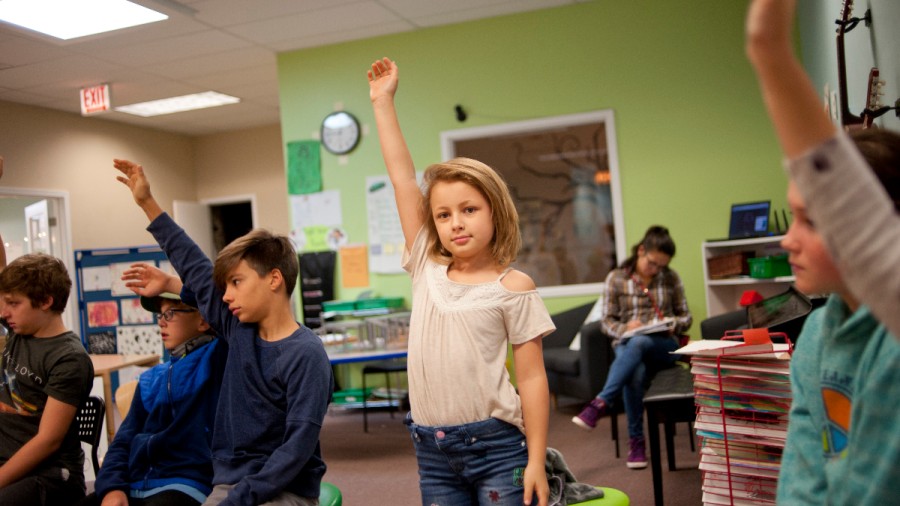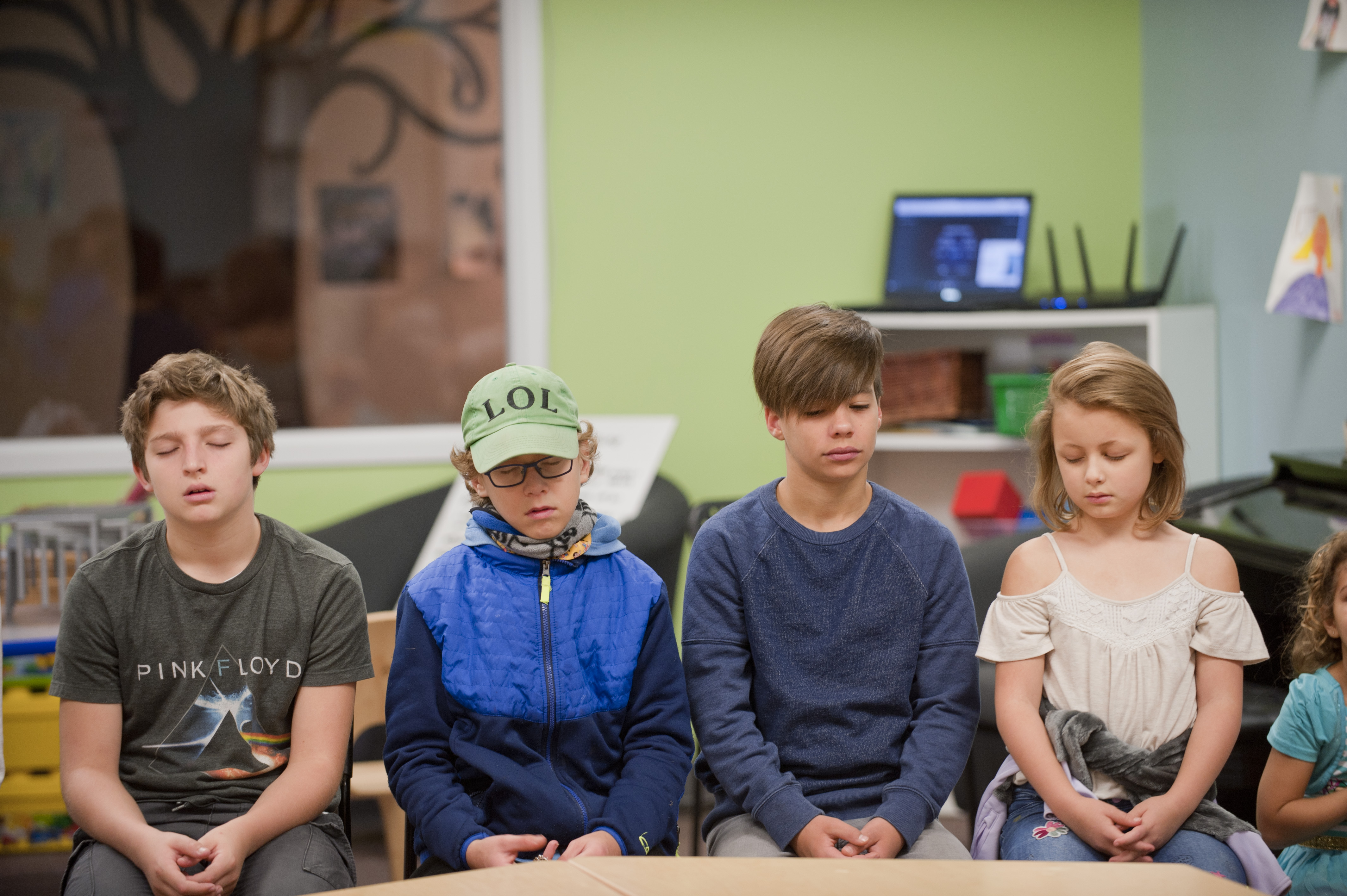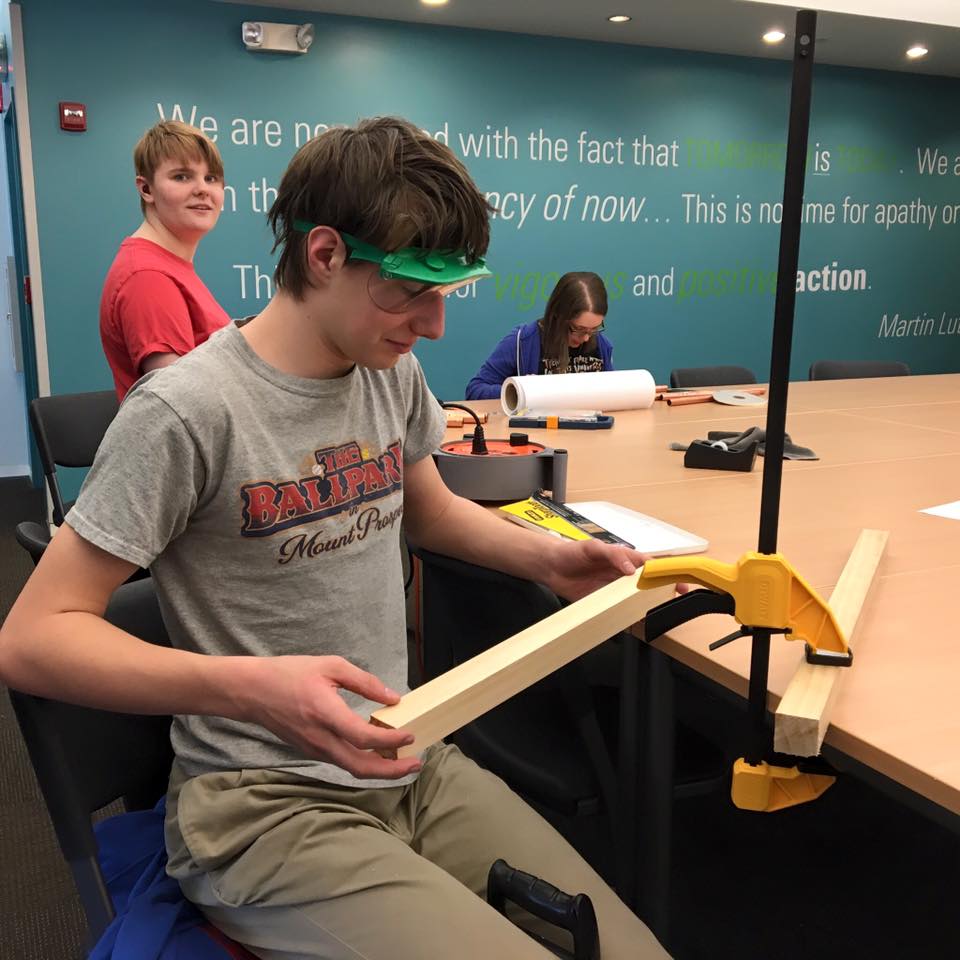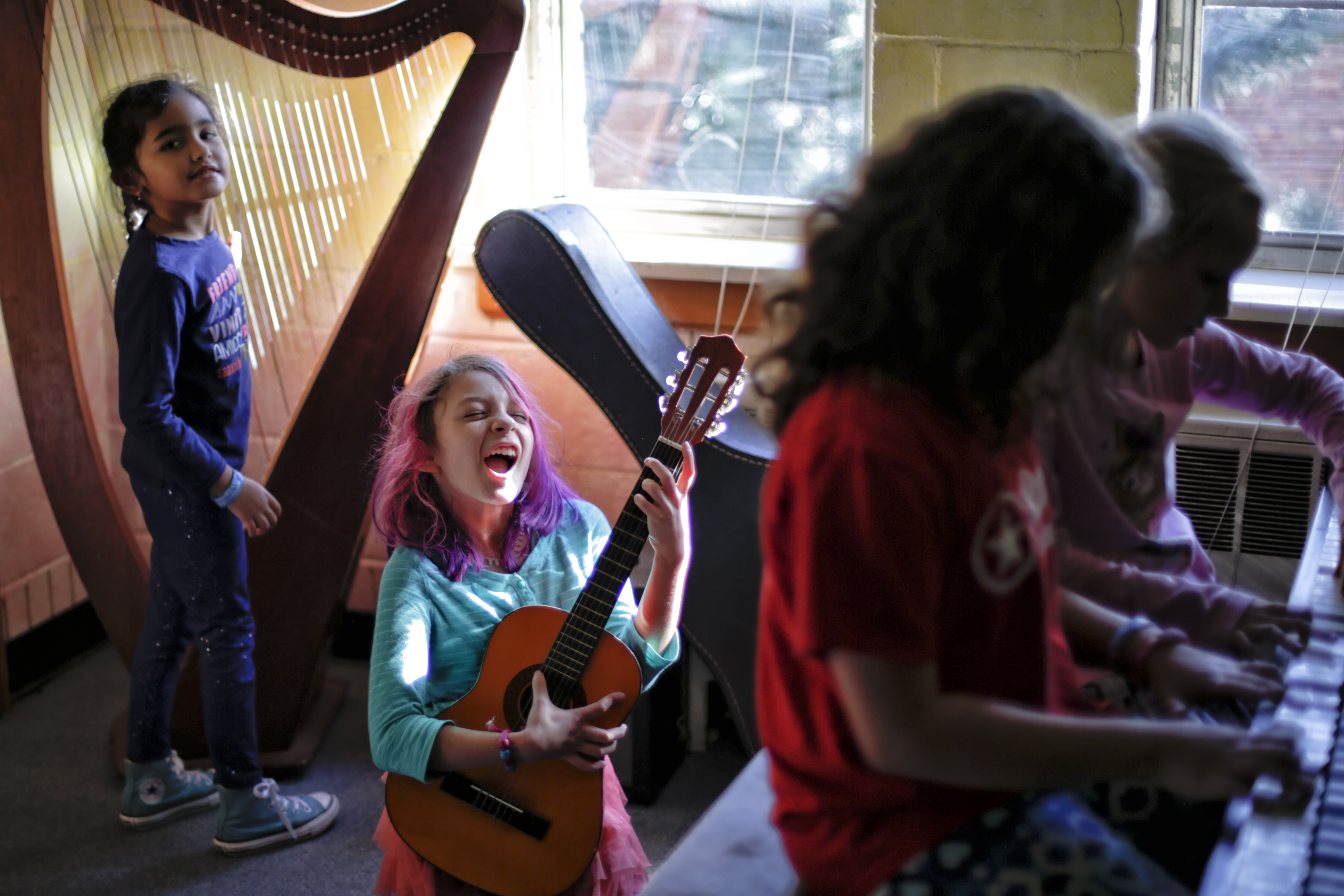At Some Chicago-Area Schools, It’s The Students Who Decide If There Is Homework
By Susie An

At Some Chicago-Area Schools, It’s The Students Who Decide If There Is Homework
By Susie AnAbout 40 kids ranging in age from 5 to 14 years old sit in a circle at Greenfields Academy on Chicago’s North Side. They start each morning with meditation.
On this morning, students discuss whether using common sense should be a goal for the day. One 9-year-old boy explained how not running with scissors is an example of this — mostly for the benefit of his 5- and 6-year-old classmates.
“Let’s say I trip. ‘Oh no, I just got impaled,’” he said as his classmates burst into laughter.
It’s an easy call. The students quickly vote in favor of common sense and then move on to their core academic subjects and group work.

Greenfields, which opened in 2014, prides itself on its unique approach to education — it was set up to offer just that. And it’s not the only one. Greenfields is one of a small number of so-called micro- schools popping up in the Chicago area and around the country to give parents an alternative to traditional public and private schools.
These private micro-schools were started by educators and parents looking to create curriculum on their own terms in a small and intimate learning environment. Often, students play a part in what and how they learn, with a focus on readying kids for the modern world. Some schools that follow the Montessori approach to education, which is arguably the most familiar non-conventional education method, consider themselves “micro-schools.”
Greenfields bills itself as a student driven community where kids take ownership of their learning. The teachers, known as guides, help them get there.

“It’s so nice to know where you’re at, know where the kids are at and (to) be able to take them to that mastery level without the shame of ‘you should’ve been here a week ago; you should’ve been here three weeks ago,’” said Courtney McGarry, Greenfields executive director.
The school uses Common Core learning standards, but McGarry said it’s taught at the student’s individual pace. She said there’s less pressure in the way kids are evaluated — there isn’t the typical letter grade. Students decide themselves if they have homework. This way, she said, they learn accountability and how to prioritize their schedules the way adults do.

McGarry said one draw is the school’s focus on teaching skills kids will use in the workplace, including pitching a project idea and working with teammates to get the job done. Each year students pair off and dream up a product to sell. The teams do market research, draw up a business plan and then exhibit the project at a children’s business fair.
“These kids get to practice these skills, these critical thinking skills, these problem solving skills at such a young age and then try them out,” she said.

Beacon Academy in Evanston is another micro-school that also opened in 2014. It’s a Montessori high school that incorporates fieldwork and apprenticeships in its teaching. Beacon opened with 37 students in 2014. This year it has 175. The school aims to expand to more than 200 students.
“As the generations shift, as millennials become parents, they are not accepting of the status quo as previous generations have been,” said Jeff Bell, head of school and theory of knowledge instructor at Beacon. “They just want more options. They want a different experience and they’re willing to pay for it, start it or demand it.”

Tallgrass Sudbury School in west suburban Riverside opened in 2008 as a “free range” school where students create their own curriculum and even play a major role in hiring their teachers. If students want to play games all day, staff members encourage it. They say that play is part of development. Tallgrass’ small enrollment has increased by 25 percent over the past three years and they said they’ve seen an increase in visits from people interested in starting their own school.
DePaul University Education Professor Marie Donovan said the movement could be gaining more popularity now that colleges and universities are expanding criteria for admission. She and others considers micro-schools as part of a larger unschooling movement that includes homeschooled children.
“They apply for college, they make it in,” Donovan said. “There’s somewhere for them if that’s what they’re going after. It’s not a barrier anymore. That’s probably been the major development in the last 20 years.”

But Donovan said only some families have these educational choices.
“Those people are mostly middle class, fairly educated,” she said. “The thing about unschooling is there isn’t a whole lot of financial support for people who want to do it.”
Greenfields Academy founder Rob Huge hopes to create a model that can serve lower-income populations one day. But until then, he thinks opening more micro-schools, including more Greenfields campuses in the years ahead, will help.
“All the micro-school incubation that is going on around the country is putting pressure on traditional schools, whether it be public or private, in terms of being able to meet the needs of our students and the needs of society as a whole,” Huge said.
Susie An is a WBEZ reporter. Follow her on Twitter @WBEZeducation and @soosieon.
An earlier version of this story incorrectly stated that Greenfields Academy does not administer standardized tests. Though it is not required, Greenfields offers standardized testing three times each year through the NWEA MAP assessment.





